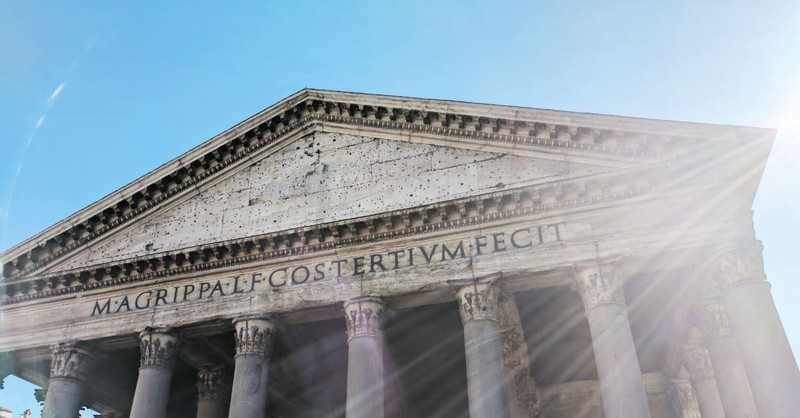“Come Out of Babylon and Stop all such practices in the Christian Church!”
— Sahdu Sundar Selvaraj
Dear Christian please review the following videos and articles and prayerfully consider whether you agree that the Church of Jesus Christ must turn from all pagan practices and embrace the life of suffering for the sake of the gospel of Jesus Christ on this earth. At the end of the day we are each responsible to obey our own consciences about these “disputable things”.
May The Lord Jesus Christ guide each of us as we follow His way.
More From a Christianity Today Article:
December 6 marks Saint Nicholas Day, and I thought I’d mark the beginning of the Christmas season by telling the story of Santa Claus’s namesake. But before I do, I should remark that, historically speaking, there’s not much we really know about Nicholas. Though he’s one of the most popular saints in the Greek and Latin churches, his existence isn’t attested by any historical document. All we can say is that he was probably the bishop of Myra (near modern Finike, Turkey) sometime in the 300s.
That said, there are of course many legends about Nicholas, and since these have influenced people throughout history, and they likely illustrate something about the historical man, they are fair game for a publication, like ours, devoted to Christian history.
Supposedly, Nicholas was born to a wealthy family in Patara, Lycia. His parents died, and he inherited a considerable sum of money, but he kept none of it. In the most famous story about his life, he threw bags of gold through the windows of three girls about to be forced into lives of prostitution. At least that’s the most common version of the story; there are others, including an excessively grim one where the three girls are beheaded by an innkeeper and pickled in a tub of brine until Nicholas resurrects them.
The Nicolaitans & Christmas?
Who were the biblical Nicolaitans mentioned in the book of Revelation and do they have a link with our modern celebration of Christmas?
Who Were the Nicolaitans in Revelation? Why Did God Hate Their Practices So Much?
Although it’s not out of the ordinary for God to hate practices of pagan groups, such as the child sacrifice of the Canaanites (Leviticus 20:2-5), Nicolaitans seem to stand out from other sects that have arisen in Scripture and throughout church history. Nicolaitans have drawn a great deal of scholarly debate, because much known about the group still lies in obscurity.

Buried in a letter to the Church of Ephesus (Revelation 2), John has a number of remarks against this church located in a city that had a famous temple to Diana (the Roman version of the Greek god Artemis). Ephesus, compared to a number of other churches that received letters in Revelation, had quite a few good marks from God. Aside from growing a bit stagnant in their fervor for God, they had resisted wicked practices, endured persecution, and weeded out false apostles from destroying their church.
The letter also makes one more positive remark. They hate the practices of a group called the Nicolaitans, which God also appears to hate (Revelation 2:6).
Although it’s not out of the ordinary for God to hate practices of pagan groups, such as the child sacrifice of the Canaanites (Leviticus 20:2-5), this group mentioned seems to stand out from other sects that have arisen in Scripture and throughout church history. Nicolaitans have drawn a great deal of scholarly debate, because much known about the group still lies in obscurity.
Why did God hate the practices of this group so much? And how did they make their way into Revelation, in history, and possibly found their way into our society today?
Nicolas: Possible Founder of Nicolaitans in the Bible
Who was Nicolas?
The Nicolaitans appear to come from a sect group at the time that followed a man by the name of Nicolas. His name can derive from a Greek root meaning “conqueror” or “destroyer.”
Some think Nicolas is the same man who appears to convert to Christianity in Acts 6:5, but lost his way to a teaching known as Gnosticism, a heretical teaching that swept away many members of the church in the second century. But nothing, other than the roots of his name, seem to link him to the sect that seemed to plague the church of Ephesus.
If, however, the Nicolas in Antioch mentioned in Acts began the sect of the Nicolaitans, he seems to have fallen away from his faith. Revelation was written long after Acts, and perhaps during that time Nicolas fell in love with idolatrous teachings and chose those over the ones of Christianity. That seems to align with the fact that Nicolaitans buckled under the pressures of Roman rule, lost their faith, and seemed to want to drag other Christians along with them.
Doctrine and Practices of Nicolaitans
Who were the Nicolaitans in the historical context?
Later in chapter 2 of Revelation, the author seems to link the practices of the Nicolaitans with the practices of those who listened to Balaam (Revelation 2:14-15). Those who followed Balaam back in Numbers used Midianite women to seduce the men of Israel and lead them to worship other gods. Examples of such acts have played out with Solomon, for instance, when his wives from pagan religions led him astray and after other gods (1 Kings 11:1-5).
Because Revelation seems to link Balaam with the Nicolaitans, one can assume the church of Ephesus faced a similar dilemma. Immersed in pagan Roman culture in that city, the sect of the Nicolaitans may have attempted to woo the Christians away from their religion, just as they had been wooed before.
Nicolaitans also appeared to eat food offered to idols, which Acts appears to decree against (Acts 15:29). Although this one doesn’t seem like a major offense, in their context, they had committed a serious spiritual crime.
Why does that last one matter?
Roman rule required sacrifice to their gods. Emperors such as Decius attempted to weed out Christians by enforcing sacrifices to various Roman deities. Those who resisted faced persecution and possible execution.
The Nicolaitans appeared to conform to this Roman culture, and seemed to encourage Christians in Ephesus to do the same in a time of dire persecution (1 Corinthians 6:12). In eating the food given to the idols, this implies they had gone to the temples to receive this food and would’ve had to engage in the immoralities there to acquire this meat.
They seemed planted in the Asia Minor region to test the faithfulness of Christians in times where it seems that loyalty matters most: when physical and spiritual life and death are on the line.
Bible History – Nicolaitans
NICOLAITANS
nik-o-la’-i-tanz Nikolaitai):
1. The Sect:
A sect or party of evil influence in early Christianity, especially in the 7 churches of Asia. Their doctrine was similar to that of Balaam, “who taught Balak to cast a stumblingblock before the children of Israel, to eat things sacrificed to idols, and to commit fornication” (Rev 2:14,15). Their practices were strongly condemned by John, who praised the church in Ephesus for “hating their works” (Rev 2:6), and blamed the church in Pergamum for accepting in some measure their teaching (Rev 2:15). Except that reference is probably made to their influence in the church at Thyatira also, where their leader was “the woman Jezebel, who calleth herself a prophetess” (Rev 2:20; compare 2:14), no further direct information regarding them is given in Scripture.
2. References:
Reference to them is frequent in post-apostolic literature. According to Irenaeus (Adv. Haer., i.26,3; iii.10,7), followed by Hippolytus (Philos., vii.36), they were founded by Nicolaus, the proselyte of Antioch, who was one of the seven chosen to serve at the tables (Acts 6:5). Irenaeus, as also Clement of Alexandria (Strom., ii.20), Tertullian and others, unite in condemning their practices in terms similar to those of John; and reference is also made to their Gnostic tendencies. In explanation of the apparent incongruity of such an immoral sect being founded by one of “good report, full of the Spirit and of wisdom” (compare Acts 6:3), Simcox argues that their lapse may have been due to reaction from original principles of a too rigid asceticism. A theory, started in comparatively modern times, and based in part on the similarity of meaning of the Greek “Nikolaus,” and the Hebrew “Balaam,” puts forward the view that the two sects referred to under these names were in reality identical. Yet if this were so, it would not have been necessary for John to designate them separately.
3. Nicolaitan Controversy:
The problem underlying the Nicolaitan controversy, though so little direct mention is made of it in Scripture, was in reality most important, and concerned the whole relation of Christianity to paganism and its usages. The Nicolaitans disobeyed the command issued to the Gentile churches, by the apostolic council held at Jerusalem in 49-50 AD, that they should refrain from the eating of “things sacrificed to idols” (Acts 15:29). Such a restriction, though seemingly hard, in that it prevented the Christian communities from joining in public festivals, and so brought upon them suspicion and dislike, was yet necessary to prevent a return to a pagan laxity of morals.

0 Comments